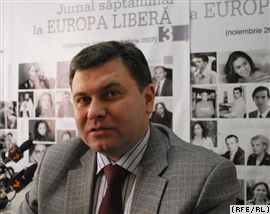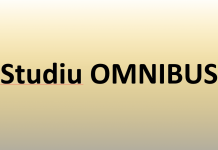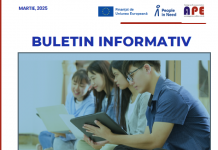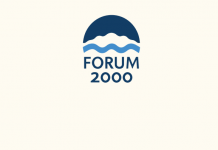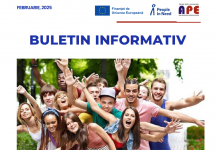For two decades already we ask ourselves: Quo vadis, Moldova?
For two decades, the answer escapes us as a Fata Morgana in the desert of Sahara. For two decades, the Republic of Moldova struggles between to be and not to be. For two decades, Moldova swings confused between East and West. For two decades, we choose between democracy and oligarchy, wealth and poverty, between the modern state and the bankrupt one, forgotten at the edge of European civilization.
For two decades, we run to catch the train of history. For two decades, we wander aimlessly in the labyrinth of transition to nowhere. For two decades, we expect that someone will take us home and take care of us as orphan children. For two decades, we build our future dreaming of the past.
For two decades, we long for a cheap life. For two decades, we sell our destiny for bread that costs 16 kopecks, sausage that costs three roubles and gas at a reduced price. For two decades, we get only the circus and no bread. For two decades, we go into the wide world in search of a decent living.
For two decades, we work for the foreigners to feed those left home. For two decades, instead of moving forward, we chose to turn left, going back. For two decades, overwhelmed by problems, we put the head in the sand, forgetting that out back is bare. For two decades, we alleviate with the idea that it could be worse. For two decades, the good is long in coming and the evil blows down our neck.
After two decades, the Republic of Moldova faces once again its eternal dilemma, whereto? After two decades, we have the rare opportunity to break the cycle of our interminable transition without a destination. After two decades, Europe is watching us. After two decades, for the first time, we are not alone while we are looking for our purpose in life. After two decades, we can build the future home. After two decades, Moldova may become a success story, an example to be followed by the others. After two decades, we have a chance to regain the dignity of being Europeans. After two decades, the fate has given us the unique, unrepeatable chance to return home, to Europe. After two decades, we have the chance to become masters in our country, as regards our present and future.
After two decades, it’s time to work and to be united. It is time to grow up as a society. It’s time for our politicians to master their conceitedness, to think and act like statesmen. It’s time to look around us and realize that the window of opportunity that Europe has opened for us will close soon, even sooner than Mr. Filat, Lupu and Ghimpu imagine.
After two decades of labour on the edge, Europe is wondering whether we are apt to not miss this opportunity, if we are able to capitalize on this opportunity, if we deserve to be Europeans. Are we able to dash to the ground, once and for all, these doubts? Are we able to catch the train of history?
Unfortunately once again, hardly arrived at an important crossroads in our history, we are divided, confused and undecided. A blind shot, aimed at a boar during a royal hunting, transformed our hopes into illusions and our trust in disappointment. The bullet hit all of us, our future, ending the life of an innocent young person, destroying a family, dispelling a success story, annihilating an alliance, overturning a government, and paralyzing a country. Moldova is thrown again into the vortex of instability and insecurity as regards its future. What is next, where are we going? Again, the eternal existential question of the Moldovans.
2013 is crucial for the further destiny of Moldova. This year, we are to convene with the EU upon the most ambitious agreement in our history – the Association Agreement, which will open the way for the economic integration and political association of Moldova with the EU. Moldova and the EU will form a common democratic, economic and political space. Moldova will get unlimited access to the EU market of 500 million consumers and will confirm a strategic alliance with 28 member states. Also, the Association Agreement will facilitate the visa liberalization with the EU, following the example of the Western Balkan states.
But for all this to become real, we need stability, solidarity, reason and faith in us and in those to whom we entrusted our destiny. Do our politicians have enough wisdom, reason and foresight to understand the stake of their possible cowardice?
If not, what do we do about them? Do we vote for them again? Or do we turn left and to the past again?
Let’s hope that Mr. Filat, Lupu and Ghimpu will disengage us from this ungracious and fatalistic dilemma. Otherwise, we all will be responsible for a failed, unrecoverable future.


